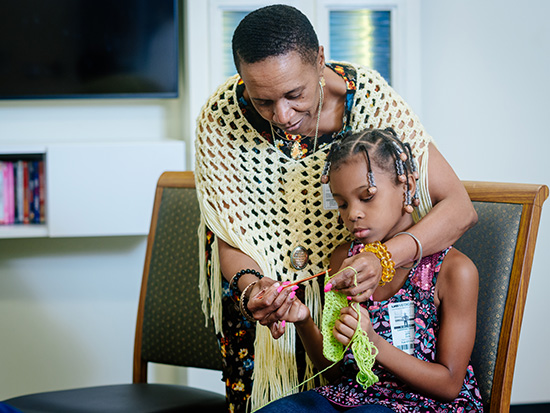
An active lifestyle is known to boost both mental and physical health, increasing life expectancy. It is often assumed that grandparents who care for their grandchildren engage in more activities, such as playing and going on outings, which should improve their health. However, researchers at the University of Alabama at Birmingham have found that grandparents who are heavily involved in the caregiving of their grandchildren actually experience poorer health outcomes.
The study, published in the Journal of Aging and Health, analyzed a nationally representative data set of older adults in the United States. The study found that, the more hours a grandparent spent on grandparenting activities, and whether they lived with their grandchildren — known as grandparenting intensity, the less often they were able to exercise.

“Our goal with this study was to understand the association of grandparenting with physical activity,” said Patricia Drentea, Ph.D., professor of sociology and lead author of the study. “We found an inverse relationship between the two because caring for grandchildren allows less time to pursue interests and stay active.”
Intensified caregiving adversely affects physical activity and overall health, most prominently among these groups:
- Grandparents in multigenerational households
- Grandparents raising grandchildren without parents
- Older grandparents
- Grandparents who are separated, divorced, widowed or never married
- Women
Most commonly, grandparents among socially and economically disadvantaged groups are tasked with primary caregiving responsibility. This causes the effects of intensive grandparenting to be the most pronounced within these populations.
“On average, socially and economically disadvantaged individuals already struggle with worse health and finding leisure time,” Drentea said. “When you add grandparenting and caregiving responsibilities to that, they find time less time for physical activity, which worsens their health.”
The study also found that grandparents with higher socio-economic and education levels were less likely to engage in intense grandparenting because “they have more autonomy and resources to engage in leisure activities,” she said.
Co-authors Greg Pavela, Ph.D., associate dean of Academic Affairs in the School of Public Health; Julie Locher, Ph.D., professor emeritus in the Department of Medicine; and UAB alumnus Lu Tian, Ph.D., acknowledge that grandparenting can be beneficial for mental and physical health. However, the team’s research highlights the need for better support for grandparents, especially those in disadvantaged health and economic situations, as their caregiving responsibilities often limit their ability to engage in health-promoting physical activities.
“Supportive environments and community-based programs can help alleviate the barriers between rigorous grandparenting and positive health outcomes,” Drentea said. “With the right support, older adults can spend time in activities that are conducive to their health and well-being.”




